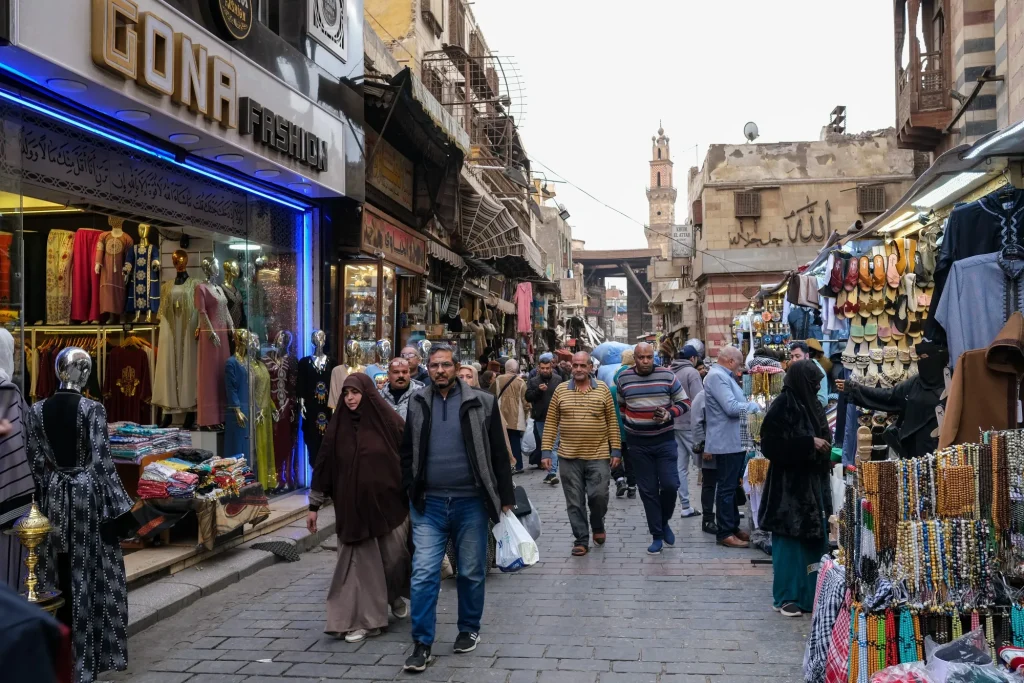Egypt’s net foreign assets (NFAs) recorded a notable increase of $1.48 billion in February 2025, marking the second consecutive monthly gain this year, according to fresh data from the Central Bank of Egypt. This upward trend comes after a string of declines over the final quarter of 2024, suggesting a shift in investor sentiment and renewed momentum in Egypt’s financial position.
Net Foreign Assets Hit $10.18 Billion in February
Based on Reuters’ calculations using official central bank exchange rates, Egypt’s NFAs climbed from $8.70 billion at the end of January to approximately $10.18 billion by the end of February. This robust monthly gain reflects rising confidence from international investors and improving macroeconomic conditions within the country.
According to a banker familiar with the development, the surge in NFAs is partly linked to increased purchases of Egyptian treasury bills by foreign investors, who appear to be responding positively to recent policy shifts and reforms aimed at stabilizing the Egyptian economy.
International Bond Sale and IMF Support Drive Recovery
One of the catalysts behind the January uptick in foreign assets was Egypt’s successful return to the international bond market. On January 29, Egypt issued $2 billion worth of dollar-denominated international bonds—the country’s first such sale in four years. The bond issuance was seen as a critical step toward rebuilding market confidence and attracting foreign capital after a period of restricted access to global credit markets.
Moreover, further gains in foreign assets are anticipated in March following the International Monetary Fund’s (IMF) recent approval of Egypt’s fourth review under an $8 billion loan agreement initially signed in March 2024. The IMF’s green light unlocked an immediate disbursement of $1.2 billion and opened the door to an additional $1.3 billion under its Resilience and Sustainability Facility (RSF).
These inflows are expected to provide additional liquidity and strengthen Egypt’s foreign exchange reserves at a time when the country continues to implement structural economic reforms.
A Gradual Climb Out of a Prolonged Deficit
Egypt’s struggle with net foreign asset deficits began in early 2022, when NFAs turned negative for the first time in years, reflecting mounting pressure on the Egyptian pound and a dwindling supply of foreign currency. This negative position had persisted since February 2022, exacerbated by global inflation, geopolitical instability, and capital flight amid a tightening U.S. interest rate environment.
However, Egypt returned to positive NFA territory in May 2024 after more than two years of strain, largely due to renewed foreign financing, a more flexible exchange rate, and fiscal adjustments aligned with IMF recommendations.
NFAs include the net holdings of foreign assets at both the Central Bank of Egypt and commercial banks, minus their foreign liabilities. The positive momentum in February was underpinned by increases in foreign assets held by both the central bank and private banks. At the same time, foreign liabilities rose at the central bank but declined at commercial banks, indicating a more balanced and less leveraged position in the banking system.
Strategic Role of Foreign Assets in Currency Management
Since September 2021, Egypt has been relying on its foreign asset reserves to stabilize its currency and meet international payment obligations, particularly amid volatility in global commodity prices and fluctuating tourism revenues. The depletion of these assets during the height of the global economic downturn strained the country’s ability to manage its exchange rate, prompting multiple devaluations of the Egyptian pound in 2022 and 2023.
The recent recovery in foreign assets serves as a buffer against renewed currency depreciation and enhances Egypt’s ability to meet its external obligations, including debt repayments, import financing, and foreign investor repatriations.
Investor Confidence on the Rebound
The resurgence of interest in Egyptian financial instruments—particularly treasury bills—is a signal that investor sentiment is shifting. The central bank’s efforts to combat inflation, along with a more flexible exchange rate and structural economic reforms under IMF supervision, have played a role in restoring market confidence.
Egypt’s treasury bills offer relatively high returns in a global context where many investors are searching for yield. This, combined with the relative stability in the exchange rate since late 2024, has made Egyptian debt instruments more attractive to international buyers.
Moreover, the commitment to the IMF-backed reform program has provided a layer of credibility that reassures investors about the government’s fiscal discipline and its ability to maintain macroeconomic stability.
Outlook: More Gains Ahead?
With the expected disbursement of further IMF tranches and continued foreign investment in local debt instruments, Egypt’s NFAs are likely to continue their upward trajectory in the coming months. If the global environment remains favorable and Egypt stays on course with its reforms, the country may gradually rebuild its foreign reserves to pre-crisis levels.
However, risks remain. Global interest rate fluctuations, geopolitical uncertainties in the Middle East and North Africa region, and domestic inflation pressures could still pose challenges to Egypt’s recovery.
Nonetheless, the recent back-to-back gains in NFAs signal that Egypt may be turning a corner in its long-running effort to stabilize its external position and reintegrate into international capital markets.




















